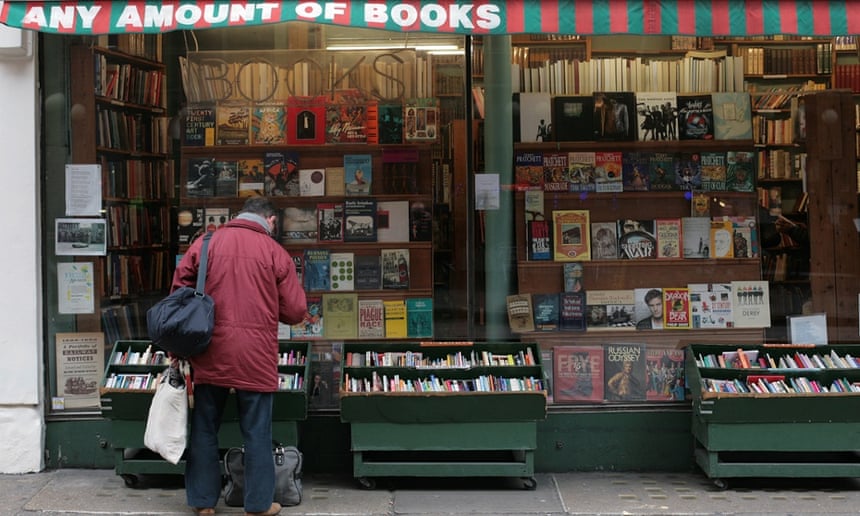Driven from the city by rising rents and online competition, a little over 100 independent bookstores remain. How much of the capital’s character is being lost with the closure of these cultural institutions?

Book Mongers in Brixton, south London, has been a fixture on Coldharbour Lane for more than two decades. At midday on Saturday the second-hand bookshop is packed, and the sound of friendly chatter – and barking – syncopates with the blues music that fills the air. A golden-yellow dog stands guard at the window, greeting familiar faces as they arrive.
“This shop is a Brixton institution,” says Matthew, relaxing on the shop’s old emerald sofa. Local writer Howard Cunnell – here with his daughter Daisy – describes it as a “meeting place for exasperated middle-aged radicals
”, while local artist and sculptor Matthew Rugg calls it “the best serendipity bookstore in town”.
Book Mongers is one of just 987 independent bookstores left throughout the UK. In the last decade, one third have shut down due to rising high-street rents coupled with the growth of online retailers, and the casualty rate has been particularly high in London.
More
“This shop is a Brixton institution,” says Matthew, relaxing on the shop’s old emerald sofa. Local writer Howard Cunnell – here with his daughter Daisy – describes it as a “meeting place for exasperated middle-aged radicals
”, while local artist and sculptor Matthew Rugg calls it “the best serendipity bookstore in town”.
Book Mongers is one of just 987 independent bookstores left throughout the UK. In the last decade, one third have shut down due to rising high-street rents coupled with the growth of online retailers, and the casualty rate has been particularly high in London.
More
No comments:
Post a Comment